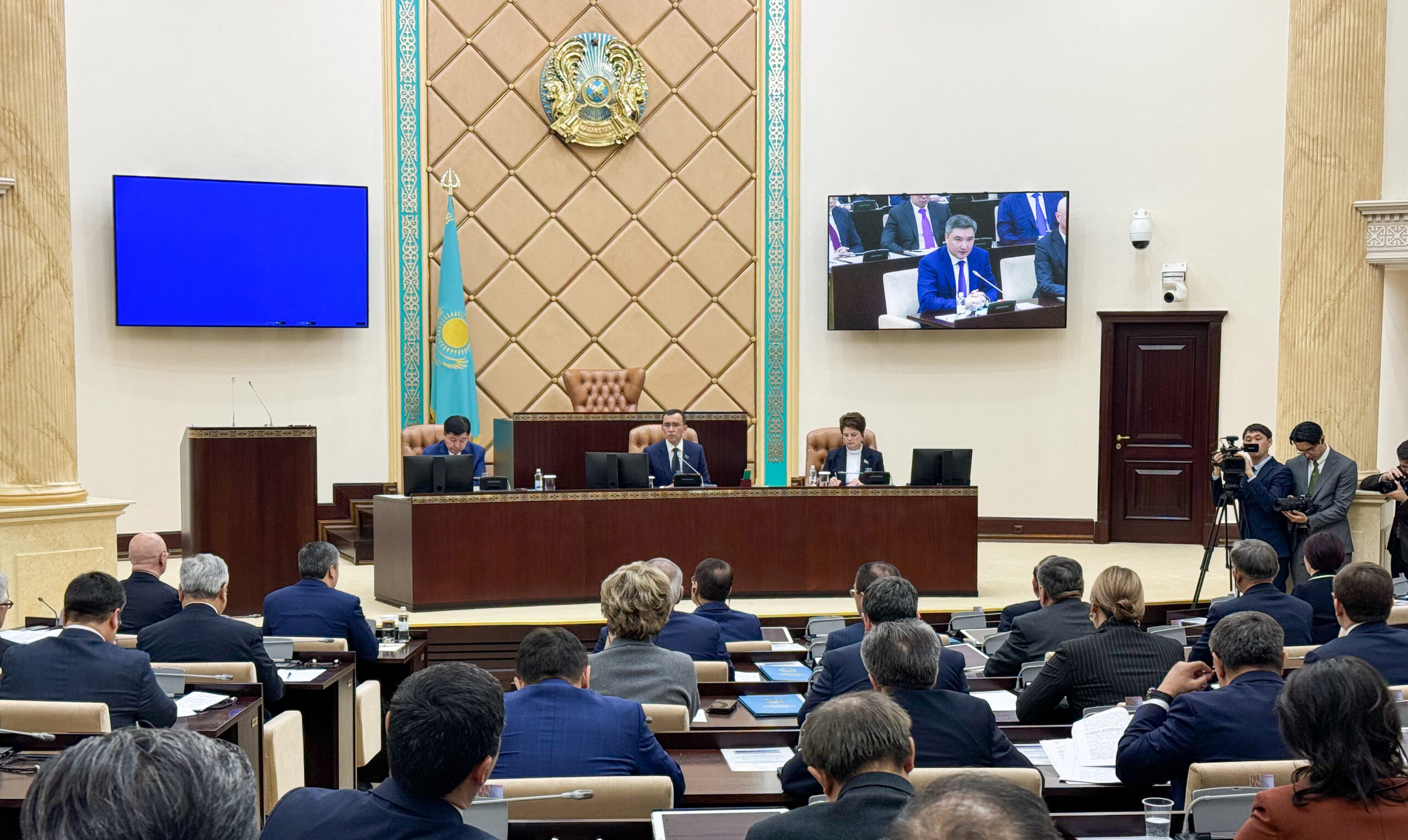ASTANA – Kazakh Prime Minister Olzhas Bektenov discussed government’s plans to build a diversified economy, develop high-value industries and increase non-resource exports during a Nov. 21 plenary session of the Senate, the upper house of the Kazakh Parliament.

The meeting participants reviewed the draft laws on the national budget and guaranteed transfer from the National Fund of Kazakhstan for 2025-2027. Photo credit: Prime Minister’s press service.
According to the Prime Minister’s press service, the government members and deputies reviewed the draft laws on the national budget and guaranteed transfer from the National Fund of Kazakhstan for 2025-2027. During the plenary session, Senate deputy Suindik Aldashev asked Bektenov a question regarding the government’s plans to build a diversified economy, develop high-value industries and increase non-resource exports.
“Diversification of the economy is one of the main tasks of the government. The government and government agencies are actively working in this direction, and today there are already results. According to statistics, the manufacturing industry has exceeded the raw materials sector in volume. If the share of the manufacturing industry is 47%, then the share of the raw materials sector is 45%. It is necessary to continue active work in this direction,” he said.
One of the strategies adopted is to prioritize sending raw resources to the domestic market rather than exporting them. It resulted in a twofold increase in domestic aluminum and copper production.
In the context of economic diversification, it is critical to assist domestic manufacturers through government procurement. Necessary steps are also being made in this regard. We have increased the list of goods purchased only from domestic producers from 1,500 to 4,500 commodity items.
“Government agencies and quasi-state companies are not permitted to acquire imported goods for these 4,500 items, but must instead buy them from domestic manufacturers. As a consequence, the quantity of contracts signed with local producers climbed by 55% to 350 billion tenge (US$702.5 million),” he noted.
Another critical step is to sign offtake agreements with domestic producers for product supply. This year’s total number of offtake contracts reached 134 billion tenge (US$269 million), 14 times more than last year.
Large-scale industrial projects are being implemented in all regions of the country today. For example, a large polypropylene plant has opened in the Atyrau Region with annual production of one million tons of polypropylene.
“Compared to all the petrochemical plants in Central Asia and the South Caucasus, the Atyrau plant has a far larger capacity. It is a very large and modern production facility,” Bektenov said.
Kia is building a full-cycle car manufacturing plant in Kostanai. The enterprise will be launched next year. A multi-brand car plant will open in Almaty. A car tire plant has opened in the city of Saran, which is also a large modern production facility.
“There are such facilities in every region. The implementation of these projects allows us to change the structure of our economy. As a result of the measures taken, this year we see an increase in finished product exports by 6.4%, while finished product imports have decreased by 7.2%. The government and state bodies will continue to work actively in this direction,” Bektenov noted.
